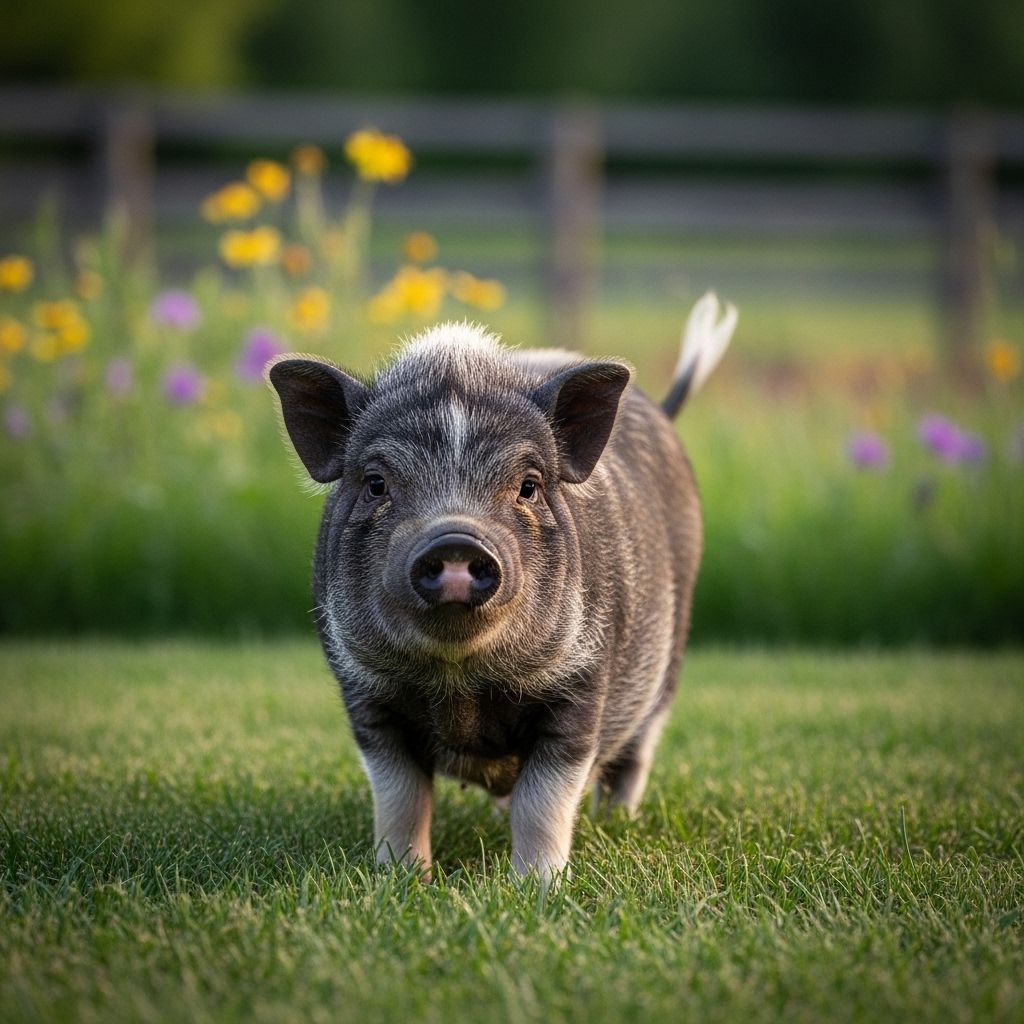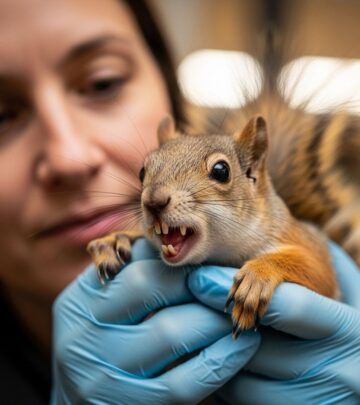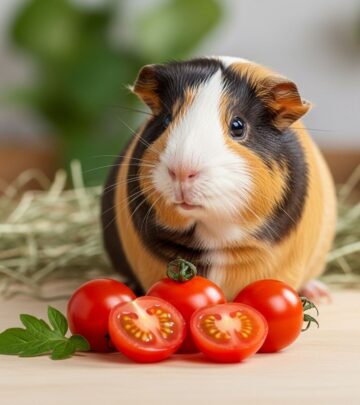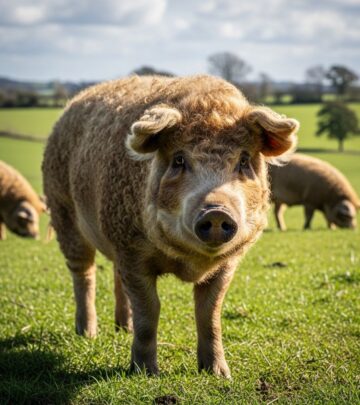Adorable Pig Facts and Care: The Joy of Miniature and Pot-Bellied Pigs
Promote health with balanced nutrition, engaging rooting spots, and cozy shelter.

Adorable Miniature and Pot-Bellied Pigs: Essential Facts, Pictures, and Care Tips
Miniature and pot-bellied pigs are among the most endearing pets, loved for their intelligence, playful personalities, and undeniable charm. This comprehensive guide covers fascinating facts, care essentials, behavioral traits, and key tips for owning these adorable pigs. Whether you’re considering adding a pig to your family or simply curious about their unique qualities, you’ll find everything you need to fall in love with these captivating creatures.
What Makes Miniature and Pot-Bellied Pigs So Special?
Miniature pigs (with Vietnamese Pot-Bellied Pigs being the most popular breed) have been domesticated for thousands of years and have recently gained popularity as household pets. Their compact size, intelligence, and affectionate nature make them ideal companions for dedicated owners.
- Intelligent: Pigs can learn commands, solve puzzles, and even master tricks and routines.
- Affectionate: With proper socialization, pigs bond closely with people and other animals.
- Playful: These animals love interactive environments, rooting toys, and outdoor adventure.
- Clean: Contrary to popular belief, pigs are naturally clean and can be trained to use litter pans.
A Brief History of Miniature and Pot-Bellied Pigs
Vietnamese Pot-Bellied Pigs originated in Southeast Asia approximately 6,000 years ago. Traditionally kept for livestock, their small stature eventually made them popular as companion animals. Today, miniature breeds, including the pot-bellied pig, are favored worldwide for their manageable size and amiable temperament.
Pigs can weigh anywhere from 40 to 200 pounds depending on breed, genetics, and nutrition. Their signature dark coloration, round bellies, and upright ears distinguish them from larger production pigs.
Common Pig Breeds You May Encounter
| Breed | Typical Adult Weight (lbs) | Key Traits |
|---|---|---|
| Vietnamese Pot-Bellied Pig | 60–150 | Compact size, friendly, intelligent |
| Miniature Juliana Pig | 40–80 | Spotted coat, quick learners |
| KuneKune Pig | 120–240 | Placid, easy-going, cute wattles |
| Göttingen Mini Pig | 50–130 | Very small, used in research, gentle |
Miniature Pig Personality: Why Owners Adore Them
Pigs are anything but ordinary farm animals. As pets, they display genuine affection, curiosity, and occasional cheekiness. Owners frequently remark on their pigs’ cleverness and problem-solving skills. Pigs are known to:
- Form everlasting bonds — with both people and other pets.
- Communicate vocally — grunting, squealing, and even oinking for attention or food.
- Root and forage — their natural instinct to dig with their snouts must be accommodated indoors and outdoors.
- Play and explore — pigs love to discover new areas, especially during walks or in a safe, fenced yard.
Rooting isn’t just a fun pastime for pigs—it’s a vital part of their behavioral health. Providing proper outlets for these instincts, such as rooting boxes filled with soft materials or a dedicated yard area, helps keep pet pigs happy and stimulated.
Rooting: The Natural Behavior of Pet Pigs
Rooting, or digging with their snouts, is a central instinct for pigs. Suppressing this behavior causes frustration and boredom. Owners should set up designated rooting spaces, either outdoors in moist soil or indoors with blankets, towels, or special rooting boxes. Inappropriate rooting on people is common, especially if pigs have been hand-fed treats. To discourage rooting on ankles, shift all treats and feeding to their food dish, and gently correct the behavior with verbal cues.
- Always provide a safe, engaging rooting area for your pig.
- Rooting outside is best in the spring when soil is moist.
- Pigs will root up plants, roots, bugs, and anything underground—they possess a powerful sense of smell.
Feeding and Nutrition: Keeping Pigs Fit and Healthy
Obesity is a common issue in miniature and pot-bellied pigs, leading to joint pain, metabolic illness, and even “fat-blindness” (when fatty deposits block vision). Proper feeding is critical for long-term pig health.
- Use commercial miniature pig feed with moderate protein and low fat content. Reputable brands like Mazuri Mini-Pig Feed are recommended.
- Most pot-bellied pigs need ½ to 1 cup of feed daily, about 2% of their body weight.
- Supplement their diet with fresh, high-fiber vegetables (lettuce, celery, carrots) and restrict fruit and starchy treats.
- Opt for training treats like plain cheerios or air-popped popcorn without salt or butter.
- Always provide fresh water in shallow dishes, as pigs prefer easy access due to their snout shape.
Overfeeding and excessive treats are the leading causes of health problems. A balanced diet, mindful portions, and exercise help pigs live well into their senior years.
Housing and Zoning: Creating a Safe Environment
Pigs require a secure and comfortable space, whether you house them indoors or outdoors. Before adopting, check local ordinances and zoning laws—many areas classify pigs as livestock, which may restrict their presence in residential neighborhoods.
- Indoor pigs: Need soft bedding, a litter pan, and a safe, gated area when unattended. Pigs can be quite mischievous if left unsupervised!
- Outdoor pigs: Require a dry shed with straw bedding and ramped entry (older pigs may resist stairs). Install fencing at least three feet high to prevent escapes.
- Enrichment: Pigs need exercise and mental stimulation. Walking on a harness and exploring outdoor spaces keeps them fit and content.
Climate Sensitivity: Pigs and Temperature Extremes
Pigs are sensitive to both heat and cold and should be housed in clean, dry, and draft-free environments. Adults are most comfortable at temperatures between 65°F and 75°F, and must be protected from extreme weather. In hot climates, shade and plenty of water are crucial; in colder regions, provide insulated bedding and enclosed shelter.
- Never leave pigs outside without access to warmth or cool shade.
- Monitor for signs of stress or discomfort during temperature extremes.
Health and Veterinary Care for Pet Pigs
Pot-bellied pigs are typically hardy animals but require regular veterinary attention, especially for the following:
- Spaying/Neutering: All pet pigs should be spayed or neutered before adoption, typically by 8 weeks of age.
- Routine Checkups: Schedule regular vet visits to monitor weight, dental health, and signs of common problems (arthritis, metabolic disease, skin issues).
- Parasite control: Deworming and fecal exams are vital for younger pigs, especially those with diarrhea.
- Illness signs: The most obvious signal of sickness is loss of appetite. Promptly consult a veterinarian if your pig won’t eat or exhibits unusual behavior.
- Arthritis Management: Older pigs may develop arthritis; joint supplements and prescription anti-inflammatories provide relief.
- ASPCA Poison Control: For suspected poisoning, contact the ASPCA Animal Poison Control Center immediately.
Are Pigs Good Pets? Considerations Before Adopting
Pigs make wonderful companions for committed, informed owners. However, ownership is a long-term commitment—pigs can live 12–15 years or more. They require proper housing, diet, routine veterinary care, and a stable environment. Before bringing a pig home, ask yourself:
- Are you zoned for pigs in your community?
- Do you have a veterinarian familiar with pig care nearby?
- Can you provide enrichment, exercise, and proper diet every day?
- Are you prepared for up to 15 years of care and companionship?
Pigs are not pets to “try out” or discard when overwhelmed; their intelligence and affection deserve responsible, caring guardianship.
Fun and Surprising Pig Facts
- Pigs can smell 100 times better than humans. This incredible sense makes them outstanding truffle hunters!
- Pigs sweat very little and may wallow to cool down—especially in muddy areas.
- Exceptional intellect: Studies show pigs are as smart as dogs, capable of complex problem solving and even recognizing themselves in mirrors.
- Pot-bellied pigs can learn tricks: From sitting and spinning to using bells for treats, pigs thrive with positive reinforcement training.
Frequently Asked Questions (FAQs) About Miniature & Pot-Bellied Pigs
Q: Are pigs easy to train?
A: Yes. Pigs are highly intelligent and quickly learn commands, routines, and tricks with positive reinforcement. Consistency and patience are crucial.
Q: Can pigs live indoors?
A: Absolutely—many owners keep pigs as house pets. Provide soft bedding, access to water, litter pans, and safe spaces. Pigs enjoy being part of the family and can be litter trained.
Q: Do pigs get along with other pets?
A: Generally, pigs socialize well with dogs, cats, and other animals, especially if introduced early. Supervision and gradual introductions are recommended.
Q: What are common health problems in pet pigs?
A: Obesity, arthritis, skin conditions, and digestive issues are the most frequent concerns. Regular vet checks and a balanced diet prevent many health problems.
Q: How long do miniature and pot-bellied pigs live?
A: With proper care, miniature and pot-bellied pigs may live from 12 to 15 years or more.
Q: What should I feed my pig?
A: Feed a specially formulated miniature pig diet, supplement with low-starch vegetables, limit fruit intake, and provide constant access to clean water.
Q: Can pigs handle hot or cold outdoor weather?
A: No. Pigs are very sensitive to temperature extremes. Always provide shelter, bedding, shade, and fresh water.
Tips for Happy, Healthy Pig Ownership
- Research thoroughly before adoption; be sure it’s the right pet for your home.
- Check local zoning laws regarding pig ownership.
- Locate a veterinarian experienced in pig health.
- Provide enrichment: rooting areas, toys, and daily walks.
- Use shallow dishes for food and water.
- Never feed pigs excessive treats or fatty foods.
- Spay or neuter all pet pigs at an early age.
- Monitor health and promptly address any change in appetite, mobility, or behavior.
Further Resources & Emergency Contacts
- Pot Belly Pig Information Centers (Pigs4Ever, sanctuary organizations)
- ASPCA Animal Poison Control Center: 888-426-4435
- Consult local veterinarians for pig-specific guidance and support
Final Thoughts: The Charm of Miniature and Pot-Bellied Pigs
Smart, affectionate, and endlessly entertaining, miniature and pot-bellied pigs are more than just cute faces—they’re rewarding companions deserving dedicated, informed care. By providing the right environment, diet, enrichment, and veterinary support, pig owners help these delightful animals thrive as loving members of the family.
References
- https://www.deepwoodveterinaryclinic.com/blog/about-miniature-and-pot-bellied-pigs
- https://www.pigs4ever.com/resource.php?recordID=30
- https://www.merckvetmanual.com/all-other-pets/potbellied-pigs/special-considerations-for-potbellied-pigs
- https://www.zoominfo.com/c/the-spruce/461161054
- https://www.petpigs.com/wp-content/uploads/2017/06/VCNA_ExoticsVol2_Num1_Jan_1999.pdf
Read full bio of medha deb












